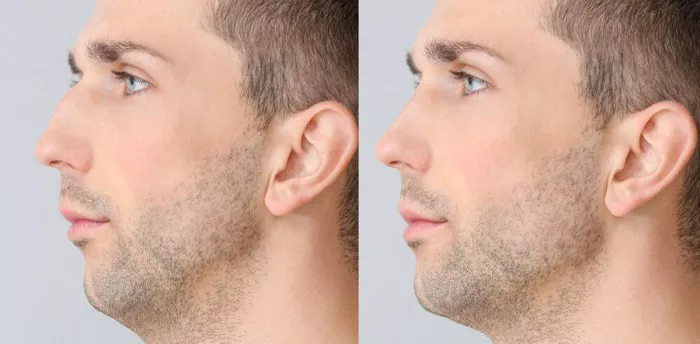Rhinoplasty, also known as nose surgery, is a popular cosmetic procedure that can improve the appearance and function of the nose. After rhinoplasty, it is important to follow certain guidelines to ensure a smooth and successful recovery. In this article, we will discuss what to do and not do after rhinoplasty to help you achieve the best possible results.
What to Do After Rhinoplasty
Follow Your Surgeon’s Instructions
Following your surgeon’s instructions is crucial for a successful recovery after rhinoplasty. Your surgeon will provide you with specific instructions on how to care for your nose after surgery, including how to clean your incisions, how to manage pain and swelling, and when to return for follow-up appointments. It is important to follow these instructions carefully and to contact your surgeon if you have any questions or concerns.
Rest and Relax
Rest and relaxation are essential for a successful recovery after rhinoplasty. It is important to avoid strenuous activities and to get plenty of rest in the days and weeks following your surgery. You should also avoid bending over or lifting heavy objects, as this can increase swelling and bleeding in the nose.
Keep Your Head Elevated
Keeping your head elevated can help reduce swelling and promote healing after rhinoplasty. You should sleep with your head elevated for the first few days after surgery, and you should also keep your head elevated during the day. You can use pillows or a reclining chair to keep your head elevated.
Apply Cold Compresses
Applying cold compresses to the nose can help reduce swelling and discomfort after rhinoplasty. You can use a cold pack or a bag of frozen peas wrapped in a towel to apply cold compresses to the nose. It is important to avoid applying ice directly to the skin, as this can cause damage to the skin.
Take Your Medications as Prescribed
Your surgeon may prescribe pain medications and antibiotics after rhinoplasty. It is important to take these medications as prescribed to manage pain and prevent infection. You should also avoid taking any medications or supplements that your surgeon has not approved, as these can interfere with the healing process.
Maintain Good Nutrition
Good nutrition is important for a successful recovery after rhinoplasty. You should eat a healthy, balanced diet that is rich in vitamins and nutrients to promote healing and reduce the risk of infection. You should also drink plenty of water to stay hydrated.
Attend Follow-Up Appointments
Attending follow-up appointments with your surgeon is important for monitoring your recovery and ensuring that you are healing properly. Your surgeon will check your incisions, monitor your progress, and provide you with additional instructions for caring for your nose after surgery.
What Not to Do After Rhinoplasty
Blow Your Nose
Blowing your nose can increase pressure in the nose and cause bleeding after rhinoplasty. It is important to avoid blowing your nose for at least a week after surgery. If you need to clear your nose, you can gently sniff or use a saline nasal spray.
Wear Glasses
Wearing glasses can put pressure on the nose and interfere with the healing process after rhinoplasty. It is important to avoid wearing glasses for at least four weeks after surgery. If you need to wear glasses, you can use tape to secure them to your forehead or switch to contact lenses.
Smoke
Smoking can interfere with the healing process after rhinoplasty by reducing blood flow to the nose and increasing the risk of infection. It is important to avoid smoking for at least two weeks before and after surgery. If you are a smoker, you should consider quitting before your surgery to promote healing and reduce the risk of complications.
Drink Alcohol
Drinking alcohol can increase the risk of bleeding and interfere with the healing process after rhinoplasty. It is important to avoid drinking alcohol for at least two weeks after surgery. You should also avoid taking any medications or supplements that contain alcohol.
Sunbathe
Sunbathing can increase swelling and discoloration in the nose after rhinoplasty. It is important to avoid sun exposure and to wear a hat and sunscreen when you are outside. You should also avoid using tanning beds or other artificial sources of UV radiation.
Engage in Strenuous Activities
Engaging in strenuous activities can increase swelling and bleeding in the nose after rhinoplasty. It is important to avoid activities such as running, lifting weights, and playing sports for at least two weeks after surgery. You should also avoid activities that involve bending over or straining, as this can increase pressure in the nose.
Touch Your Nose
Touching your nose can increase the risk of infection and interfere with the healing process after rhinoplasty. It is important to avoid touching your nose or picking at your incisions for at least two weeks after surgery. You should also avoid wearing clothes that need to be pulled over your head, as this can put pressure on the nose.
Conclusion
In conclusion, rhinoplasty is a popular cosmetic procedure that can improve the appearance and function of the nose. Following certain guidelines after rhinoplasty is crucial for a successful recovery. It is important to follow your surgeon’s instructions, rest and relax, keep your head elevated, apply cold compresses, take your medications as prescribed, maintain good nutrition, and attend follow-up appointments. It is also important to avoid blowing your nose, wearing glasses, smoking, drinking alcohol, sunbathing, engaging in strenuous activities, and touching your nose after rhinoplasty. By following these guidelines, you can help ensure a smooth and successful recovery after rhinoplasty.


